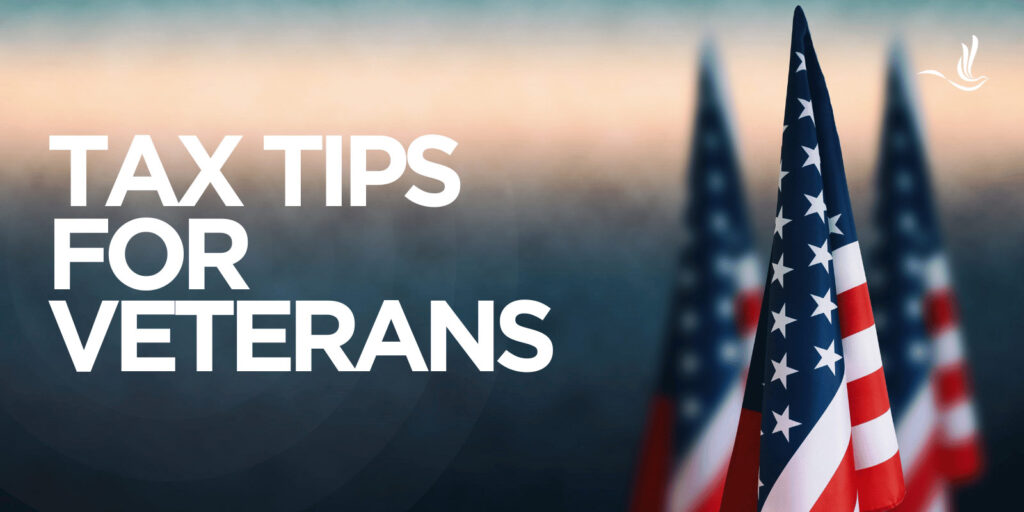
As veterans transition to civilian life, understanding the intricacies of the tax system becomes crucial for managing finances and maximizing returns. Fortunately, there are specific tax tips tailored to the unique circumstances of veterans that can help them make the most of available benefits and credits. In this article, we will explore key tax tips for veterans to help them navigate the tax landscape.
Understand Military Pay and Benefits
Veterans often receive various forms of income, including military retirement pay, disability benefits, and combat pay. Understanding the tax implications of each source of income is crucial. While military retirement pay is generally taxable, certain benefits may be partially or fully tax-free. Familiarize yourself with the tax treatment of each income stream to accurately report them on your tax return.
Disability Compensation
One of the most significant tax breaks for veterans is disability compensation. Veterans who have sustained service-related injuries or developed service-connected disabilities are eligible for tax-free disability compensation from the Department of Veterans Affairs (VA). These payments provide financial support and are not considered taxable income, offering veterans a means to maintain their standard of living despite any limitations imposed by their injuries.
Combat Pay Exclusion
Service members who receive combat pay may exclude this income from their taxable earnings. The Combat Pay Exclusion is designed to acknowledge the challenges and risks associated with serving in combat zones. By excluding combat pay from taxable income, veterans can potentially find themselves in a lower tax bracket, reducing their overall tax liability.
Utilize Veteran-Specific Tax Credits
Veterans may be eligible for specific tax credits. Explore these credits to potentially reduce your tax liability or enhance your business ventures.
Education Benefits
The GI Bill and other education-related benefits offer veterans the opportunity to pursue higher education without incurring significant financial burdens. These benefits cover tuition, fees, and provide a housing allowance, all of which are generally not subject to federal taxation. Additionally, some states offer additional tax breaks for veterans pursuing education, further easing the financial strain of obtaining a degree post-service.
Small Business and Employment Tax Credits
Veterans who start their own businesses or are employed by businesses that prioritize hiring veterans may be eligible for various tax credits. The Work Opportunity Tax Credit (WOTC) provides incentives to employers who hire veterans and other targeted groups. The WOTC is generally calculated at 40% of up to $24,000 in wages paid to veteran employees during their first year of employment, up to a maximum limit of $9,600. The employee must have performed at least 400 hours of work for that employer.
Earned Income Tax Credit
The EITC is a federal tax credit designed to assist low to moderate-income individuals and families. To qualify for the EITC, taxpayers must have earned income from employment or self-employment and meet certain other requirements. If the veteran has qualifying children, the amount of the EITC can be higher. Qualifying children must meet specific criteria, including relationship, age, residency, and dependency.
Review State-Specific Benefits for Veterans
Many U.S. states offer various tax breaks and exemptions for veterans. Here are a few examples of tax breaks for veterans that some states have historically offered:
- Property Tax Exemptions: Some states provide property tax exemptions for disabled veterans, often based on the severity of their disability. This exemption may apply to the veteran’s primary residence.
- Income Tax Exemptions: Certain states exclude military retirement pay from state income tax. This can be particularly beneficial for veterans who receive retirement income from their military service.
- Educational Benefits: Some states offer veterans in-state tuition rates at public universities, regardless of residency status, or provide other educational benefits.
- Business Ownership Incentives: Certain states have programs to support veteran-owned businesses, including tax incentives and procurement preferences.
Tax Help for Veterans
As veterans embark on their post-military journeys, navigating the tax landscape becomes a key aspect of financial management. By understanding the nuances of military-related income, exploring veteran-specific credits, and leveraging available deductions, veterans can optimize their tax situations. Whether pursuing education, homeownership, or starting a business, staying informed about tax tips for veterans and seeking professional guidance are essential steps toward financial success in the civilian world. Optima Tax Relief is the nation’s leading tax resolution firm with over $1 billion in resolved tax liabilities.
If You Need Tax Help, Contact Us Today for a Free Consultation